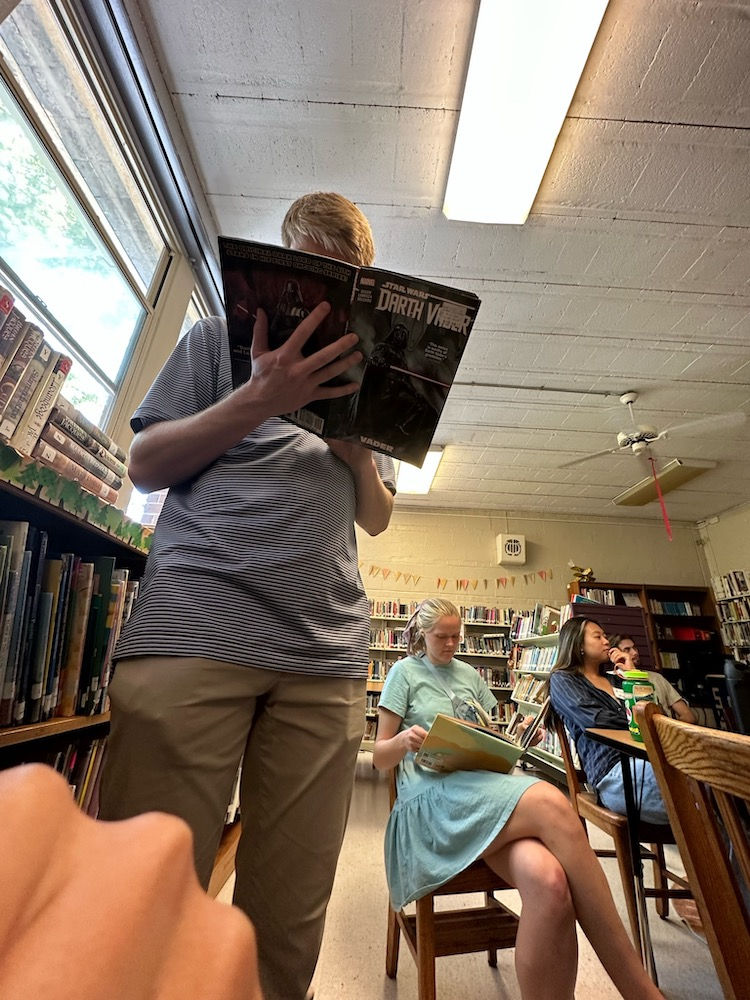The Spiritual Value of Ordinary Work
- Capital Fellows
- Oct 14, 2023
- 4 min read
By Spencer Burress
For a long time, I believed the lie that “secular” jobs were necessary, but not all that important to God. Through Capital Fellows, God has graciously disabused me of that prideful outlook.
As we’ve studied the book of Genesis this month, the Holy Spirit has transformed my thinking by highlighting God’s initial command to Adam and Eve: "Be fruitful and multiply and fill the earth and subdue it, and have dominion over the fish of the sea and over the birds of the heavens and over every living thing that moves on the earth" (Genesis 1:28). God then gives them a more specific task: to "work" and "keep" the Garden (Genesis 2:15).
We can understand the rest of Genesis through the lens of this commission from God, also known as the "cultural mandate." The commission continues throughout the narrative of Genesis and of the Bible as a whole. In Genesis, the people’s obedience or disobedience to God can often be measured through their adherence to this commission. Case in point: the cultural mandate has been a crucial part of God’s plan from the beginning. Moreover, it is still important to us thousands of years later.
It remained in effect when Israel was in Egypt (Exodus 1:7), God reaffirmed it when Israel found itself in Babylonian exile (Jeremiah 29:4-7), and it has by no means ended with the death and resurrection of Christ. The cultural mandate continues to this day as we spiritual exiles seek to expand God’s Kingdom.
Naturally, the question we must now ask is, how do we build the Kingdom? Perhaps, I would suggest—along with famed novelist Dorothy Sayers—by building "great tables." Now, I am not ignoring the spiritual implications of the great commission in saying this. Of course, we should build the Kingdom through sharing Christ and making disciples; purely ministerial work matters. But what if we reminded ourselves of the cultural mandate as we set out to do our ordinary work? What if we saw our jobs as carpenters, lawyers, painters, and plumbers as “Kingdom work”; as obedience to God’s command to join in on his work of cultivating the earth?
Subduing the earth entails doing good work in secular spheres. As Sayers writes her essay, "Why Work?": “The secular vocation, as such, is sacred.” Regular, “non-churchy” jobs, when seen as exercises of dominion and cultivation, become dignified acts of obedience to God’s cultural mandate and calling. This is why Sayers claims that a Christian carpenter’s primary responsibility is to make good tables. Whatever work we do on this earth should be done heartily, to the glory of our Creator. Then and only then can it truly mean something.
“And whatever you do, in word or deed, do everything in the name of the Lord Jesus, giving thanks to God the Father through him.” - Colossians 3:17
Pictures From The Week

The Capital Pres Fairfax Fellows after serving on a Sunday.

Perusing the literature of the Cornerstone Library.

We made a new friend named Wrigley.

The Fellows setting up shop in one of McLean's Sunday school classrooms.
Know a Potential Capital Fellow?
If you know a college senior or recent graduate that should consider joining the Capital Fellows program in 2024-25, please encourage them to get in touch with us. The easiest way to express interest in the program is our Contact Us Form. You can learn more about the program, including application deadlines, by visiting the Capital Fellows website.
About Capital Fellows. Capital Fellows is an advanced leadership and discipleship program for recent college graduates. Through graduate courses, a paid internship, one-on-one mentoring and many leadership and community service opportunities, fellows develop and apply their gifts in real-world situations while learning to integrate a Christian worldview into all areas of life. Capital Fellows is a unique opportunity to live and work in the Washington DC area and to be an active member of a supportive community that seeks to serve the city with the love of Christ. It is also a unique opportunity to get hands-on experience in the workplace while deeply exploring God’s design for us as workers and contributors to human flourishing.
Pray for the Capital Fellows
Thank you for praying for the Capital Fellows each week!
The Capital Fellows are starting in on two projects this week: the infamous "Daniel" paper, for Bill Fullilove's seminary class, and the MCODE assessment. The Daniel paper is an opportunity to reflect on what it means to live in exile, as Daniel did during the Babylonian Empire. The MCODE is a personality assessment that gives insight into inner motivations. Both of these tools, as with many other aspects of this program, help fellows to go deeper in their knowledge of God and of themselves. Please continue to pray for them as they discover, grow, and prepare to lead lives of servant leadership in the workplace, church, and society.
Want to pray for the Capital Fellows in an ongoing way? Download this handy prayer guide for your phone or tablet.
About The Fellows Initiative
Capital Fellows is part of a network of similar programs across the country. This network is called The Fellows Initiative. There are 34 Fellows programs in TFI, roughly 3,000 alumni living around the world, and more Fellows programs on the way.
If you know a church in the US or Canada that would benefit from joining TFI by launching a new Fellows program. Please contact TFI by visiting their website.
Don't Miss a Blog Post!
Signup for the Capital Fellows blog email! Emails are sent weekly during the program year. An unsubscribe link is provided in every email.





Comments